On August 6, 2025, Fresno Christian Schools introduces a lunch cellphone policy for the high school student body to encourage interaction between peers. The policy enforces a revisited zero tolerance reaction towards phones in use during class periods and a new facet that affects use of cellular devices during lunch time.
Did you know the iPhone debuted on June 29, 2007? This makes the Class of 2026 the first graduating class younger than the iPhone. Essentially, every student K-12 is officially born into the “Modern Digital Era.”
With the era of “screenagers” steadily on the rise, many schools within the Fresno Unified School District (FUSD) enforce policies limiting the usage of phones during school hours. On September 23, 2024, Governor Gavin Newsom signed the “Phone-Free School Act,” which requires every school district, charter school and county office of education to formulate a policy that limits or prohibits the use of cellphones on campus.
This bill goes into effect on July 1, 2026 for all districts within the state of California, which is joining 30 other states that already have restrictions in place. The act aims to limit the presence of distractions in the classroom, reduce anxiety/depression among teens and to promote interaction between classmates during school hours.
Studies are beginning to show the positive impacts of removing access to phones. The Bentonville School District in Arkansas is showing a recorded 57% reduction in verbal and physical aggression disciplinary offences and a 51% reduction in drug-related offenses. Detroit Achievement School has already seen a 6.4-14.23% increase in test scores. Studies continue to grow showing a multitude of positive results.
Amy Deffenbacher, high school principal, has witnessed first hand the differences between peer connections when encouraged and neglected.
“Phones and laptops with video games increasingly became the norm around the lunch tables. Students weren’t talking and laughing with each other. It was pretty discouraging,” Deffenbacher said. “We live in a time when we are, seemingly, more connected than ever yet many of us feel more isolated and alone than we could have ever imagined.”
View this post on Instagram
The FCS student body is no stranger to the lunch phone policy. Many of the incoming freshman spent their 7th and 8th grade years with the exact same policy. Initially formulated in the fall of 2022 to help strengthen peer bonds, many teachers claim to see positive impacts with socialization between classmates. After three successful years of implementation, the lunch ban is fully enforced in the high school setting.
Students initially spent their lunch time glued to their phones, but the policy gave them an alternative by supplying classmates with sports items such as footballs and spike ball setups. Despite the sudden change in response towards cellphones, staff and parents offer less shocked reactions than the student body. Many parents voice their approval of the updated policy, embracing the change that they feel is long overdue.
The lunch side of the policy itself impacts the freshman, sophomore and junior classes much more than that of the senior class, who go off-campus any day of the week.
Bryce Smith, ’26, now almost entirely unaffected by the new policy, is confused by the nature of it and why it is being applied to essentially adults.
“I go off campus almost every single day,” Smith said. “It’s fun to drive and eat with friends at a new place every day instead of the same lunch room I have been in for the last eight years.”
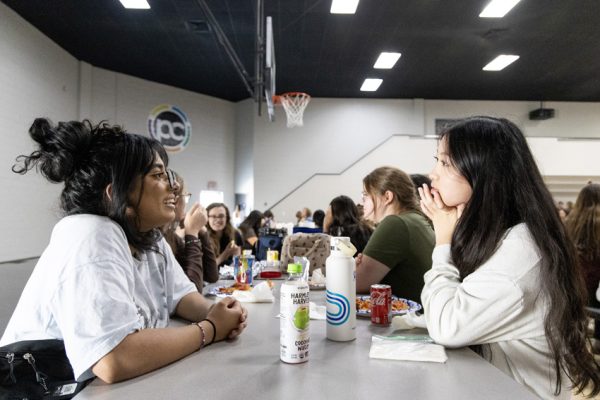
This inadvertently motivates many senior students to go off-campus to avoid the phone restrictions. Some without cars either walk to the Retro Junction area or hitch a ride with fellow students to further locations for a change of lunch time scenery.
Elijah Carrao, ’28, experienced the first two years of the middle school lunch policy before returning to a smart phone present lunch during his freshman year.
“I personally feel that not being able to use our phones during lunch forces us to be more social with others, which is probably better in the long term,” Carrao said. “Not being able to use our phones helps us build more high school memories with each other.”
Bullard High School, one of the first in Fresno Unified to take action against the overuse of smart phones, utilizes special magnetic pouches that enable students to keep their phones on them without the ability to use them. Students lock their phones in pouches for the duration of the school day, then receive a magnet to unlock the pouch as they leave campus.
Yondr, the manufacturer of the pouches, rolled them out to many schools across the nation to assist with the problem. Many schools, both in and outside of California, utilize some form of the pouches to enforce their phone-free policies instead of directly taking smart devices from the students. Important to note that some students have found a bypass by switching their personal device with a burner phone.
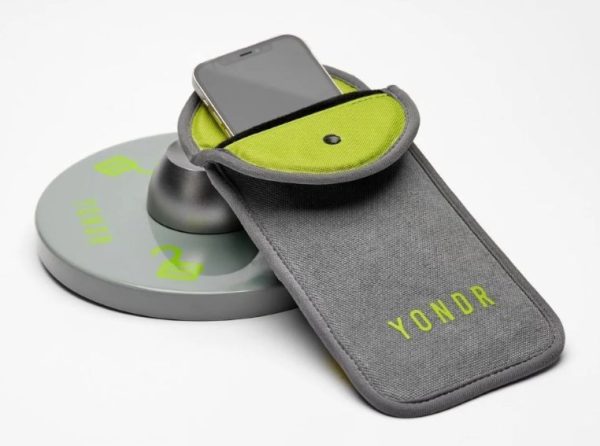
Hudson Mott, a senior student at Bullard High School, locks up his phone every day of the week since freshman year.
“I think [Yondr pouches] can definitely help with focus and self control,” Mott said. “They are a good alternative for school purposes instead of straight up banning them, but there are some parts I disagree with.”
Students are disappointed with the inability to access their devices until the end of the day, the confiscation of phones when in use and not being able to communicate during school hours.
Despite these changes, it is unlikely that FCS will introduce a phone free campus via Yondr pouches. The school is trying to maintain trust between student and staff, so permanently taking away such a privilege is not on their agenda.
For more articles from The Feather, make sure to read Eagles take the field backed by family, faith and football and Legendary Feather Adviser, Greg Stobbe, loses life to cancer.



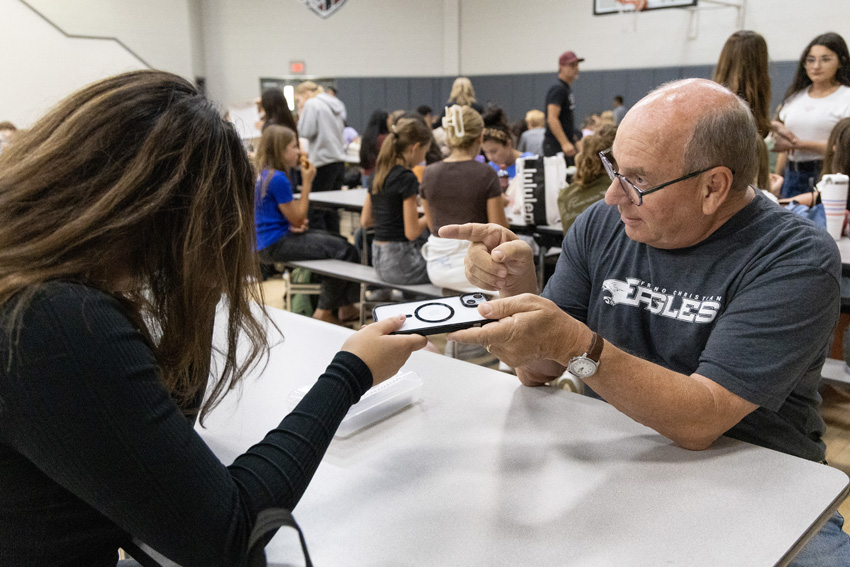

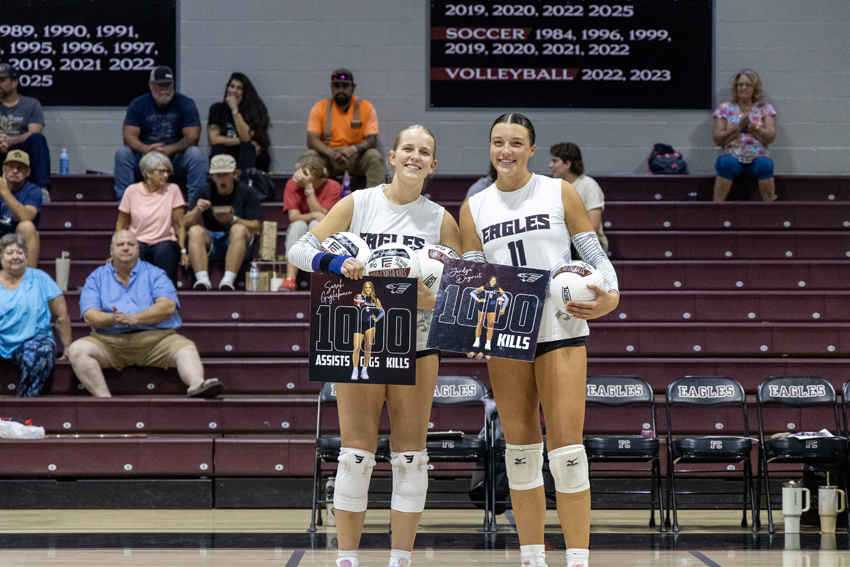

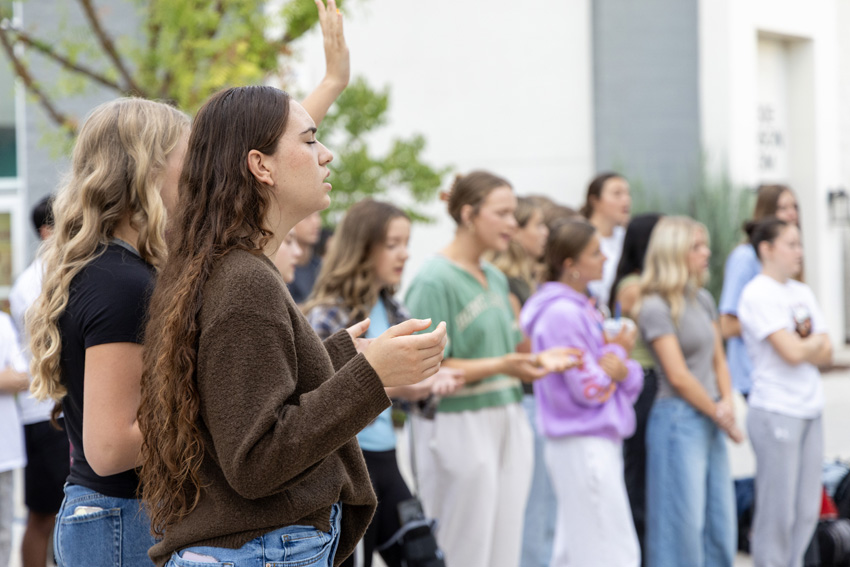
Tabitha Peters • Sep 5, 2025 at 2:17 pm
Great article, Hayden! I know how hard you worked on this one. Thank you for informing the student body of the changes!